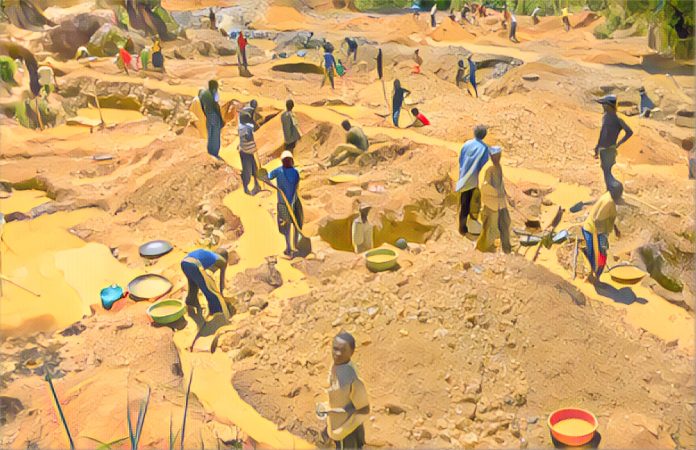In Tassa, a quaint village in Dawakin Kudu LGA of Kano State, activity thrives on the banks of the Tumburawa river.
Yunusa Umar, 30, joins other young men in shoveling sand into trucks. Each scoop brings him closer to his daily earnings of N5,000 to N10,000. This operation has grown noticeably. It started with wheelbarrows but now sees over 100 tipper trucks daily.
But not everyone sees this as progress. While more than 2,500 laborers like Yunusa see a booming business, farmers such as Yazidu Labaran anticipate a looming disaster.
Rabiu Audu’s experience confirms these fears; he lost his three-acre farmland in Rukku, Kura LGA because of aggressive riverbank expansion from sand mining.
This scenario highlights a rising concern: aggressive sand mining along the Tumburawa river poses an environmental risk and jeopardizes local farmers’ livelihoods.
Each year, people mine 50 billion tonnes of sand globally, making it the second most consumed resource after water, according to the United Nations Environment Programme (UNEP). Kano State mirrors this global trend.
According to a report by Premium Times, urbanization and population growth have spiked the demand for construction sand, placing Tumburawa river at the heart of this extraction frenzy.
However, this has severe environmental fallouts: increased erosion, weakened storm surge defenses, biodiversity loss, and disruptions to water and food supply chains.
In the mid-2010s, sand excavation threatened the Tumburawa bridge by weakening its foundations. An emergency repair in 2017 prevented a collapse.
Nevertheless, in 2018, Babatunde Fashola, then Minister of Works and Housing, urged an end to sand mining along the river. But miners ignored his request.
Sand mining in Kano has reached impressive scales. Documents from the Mining Cadastre Office show 96 active sand mining titles in Kano State, with 51 centered in Madobi, Kura, and Dawakin Kudu.
Since the issuance of most licenses in 2018, sand excavation has noticeably surged. Satellite images reveal this growth, showing a significant increase in sand dredges in the river – from one in 2015 to 30 in 2021.
Many local farmers, fearing erosion, have sold their lands to sand miners at low prices. Farmland erosion became a reality, regardless of whether farmers sold willingly or lost their lands involuntarily.
This surge in mining activity and the resulting destruction prompted farmers from affected LGAs – Kura, Madobi, and Dawakin Kudu – to form the Association of Tassa Rice Farmers’ Cooperative Union. They petitioned authorities for help.
Their united front led the National Environmental Standards and Regulations Enforcement Agency (NESREA) and the Kano State Ministry of Environment to conduct investigations.
Both agencies reported significant environmental damage. The Hadejia-Jama’are River Basin Development Authority also confirmed that mining eroded large parts of the riverbanks and lowered the water table, disrupting irrigation.
In summary, sand mining may provide income for laborers like Yunusa, but its broader impact on the environment and farmers’ livelihoods demands attention. As sand mining booms in Kano, the challenge lies in balancing economic benefits with environmental protection.



